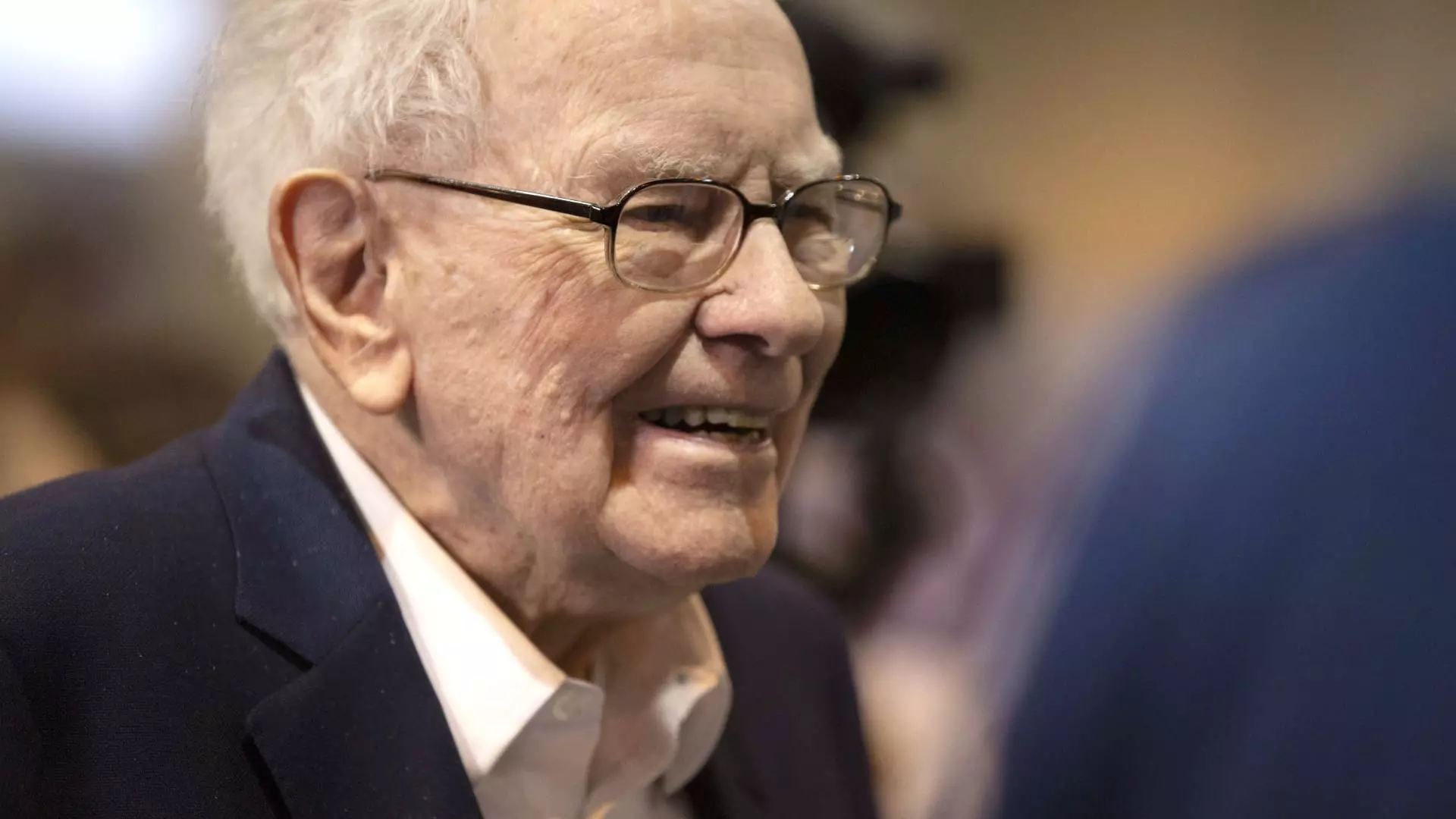Warren Buffett, the iconic 94-year-old CEO of Berkshire Hathaway, has long been revered for his insightful equity investments. However, recent actions have induced a sense of intrigue among investors and analysts alike. Buffett’s decision to sell stocks continuously throughout the last year and amass an extraordinary cash reserve – now reaching a staggering $334 billion – raises questions about his current investment philosophy. His highly anticipated annual letter provided limited insight into this shift, leaving many to wonder if this cautious approach indicates a broader reassessment of market conditions or merely a temporary tactical pause.
In the letter, Buffett reassured his shareholders, stating that despite concerns regarding the cash pile, the company’s investment strategy remains firmly rooted in equities. He emphasized that a substantial majority of shareholders’ funds will always be committed to stocks, primarily American equities with significant international operations. Yet, his acknowledgment of a “great majority” in equities contrasts sharply with the continuous sale of various stock holdings, which has some shareholders feeling a sense of unease.
Market Conditions and Cash Accumulation
The past year’s financial landscape has been riddled with volatility and uncertainty. With interest rates reaching multi-year highs, many have speculated about the positioning of Berkshire’s cash reserves. Buffett himself has articulated his concerns about the current market’s valuations, noting that opportunities for investments in high-quality companies are becoming increasingly scarce. This caution is reflected in Berkshire’s ninth consecutive quarter of net stock sales, which resulted in the offloading of over $134 billion worth of equities, chiefly from its stakes in Apple and Bank of America.
Investors are justified in their desire for clarity regarding Buffett’s defensive stance. The Berkshire CEO’s seemingly hands-off approach during a time when the S&P 500 has risen over 20% in each of the last two years can appear perplexing. This strategy may suggest a deliberate sidestepping of the market, rather than an outright abandonment of equities. Nevertheless, it raises eyebrows amid rising operational earnings and a bullish stock market, hinting that perhaps Buffett is waiting for more favorable market conditions before re-entering aggressively.
Berkshire Hathaway’s reluctance to engage in share repurchases further fuels speculation around its strategic direction. Despite increased profits, no shares were repurchased in the fourth quarter or the beginning of the following year. This pause contrasts markedly with a booming stock market environment, where companies typically capitalize on favorable conditions to enhance shareholder value through buybacks.
Furthermore, Buffett’s remarks hint at an underlying concern regarding stock valuations, leading some analysts to speculate whether he is attempting to conserve capital for future opportunities. For shareholders, the absence of buybacks might feel like a sidelining of immediate investment potential, which might otherwise stabilize or boost stock prices.
However, Buffett’s indication of promising leadership from his designated successor, Greg Abel, offers a glimpse of potential long-term strategies. By endorsing Abel’s equity investment acumen, Buffet has subtly positioned the company for a future where whatever capital is reserved now might be strategically deployed by Abel when viable opportunities arise.
As Berkshire Hathaway navigates these uncertain waters, it’s essential to differentiate between cautiousness and timidity. Buffett’s decades-long track record as an investor suggests that today’s inaction should not be misconstrued as weakness. Rather, it could be indicative of an astute investor’s patience—maintaining a vigilant eye on market conditions until a more favorable and strategic opportunity presents itself.
This gradual approach suggests that although he has slowed down equity purchases, Buffett has not lost faith in the market’s potential. His underlying philosophy is likely to pivot from a defensive strategy back to one of engaging opportunities amid a landscape that seems ripe for recovery. As he aptly noted, a significant proportion of Berkshire’s resources will continue to be allocated to high-quality businesses—whether they are currently in the limelight or awaiting rediscovery.
In essence, Warren Buffett’s current posture may be less about retreating from equities and more about laying the groundwork for future strategic investments, reinforcing the notion that in the realm of investing, patience often reaps the most considerable rewards.


Leave a Reply